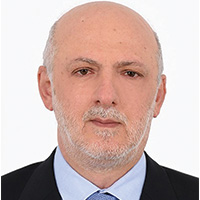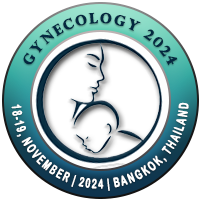
Ioannis Chatzipapas
, GreeceTitle: Hysteroscopy for training residents using uterine post-hysterectomy specimens with a mobile hysteroscope
Abstract
Education
in endoscopic surgery focuses on theoretical training and mainly on practical
training including the practice of technical skills under the supervision of
experienced trainers. See one, do one, teach one. It has been the foundation of
medical training for over a century, but unfortunately, it no longer works.
Young doctors today need to be trained in simulators and models repeatedly
until they reach a certain level of competence. The expression coined by
Aristotle, “For the things we have to learn before we can do them, we learn by
doing them.”, applies to our time. Several types of endoscopy simulators are
commercially available, Including traditional box trainers, animal-based and
virtual and augmented reality. All have their benefits and limitations. They
have all been shown to improve trainees' endoscopic skills, and increase
efficiency, reduce costs and improve patient safety. Training in hysteroscopy
can be challenging, especially in conscious women as an office procedure. I
present a realistic hysteroscopy training model for residents using human
uteri. Human uterine specimens were acquired immediately after hysterectomy
before they were sent for histological analysis and were used as a training
model for hysteroscopy. This new technique has been used for one year in our
resident training program. Each resident performs a number of diagnostic and
operative hysteroscopies in extirpated uteri, before performing procedures on
women in the operating room. Simulating hysteroscopy on human uterine models
offers a novel and realistic way of training novices prior to conducting
procedures under supervision on live patients.
Biography
Ioannis Chatzipapas has
been a Consultant of Obstetrics-Gynecology & Endoscopic Surgery at the 1st
Department of Obstetrics and Gynecology at the University of Athens, Alexandra
Hospital, Greece, since 1999. He
has been trained in Maternal-Fetal Medicine in the United Kingdom. In gynaecological
endoscopy in the United Kingdom and Germany. Has a particular interest in
advanced pelvic endoscopic surgery,
hysteroscopy and innovative techniques.

